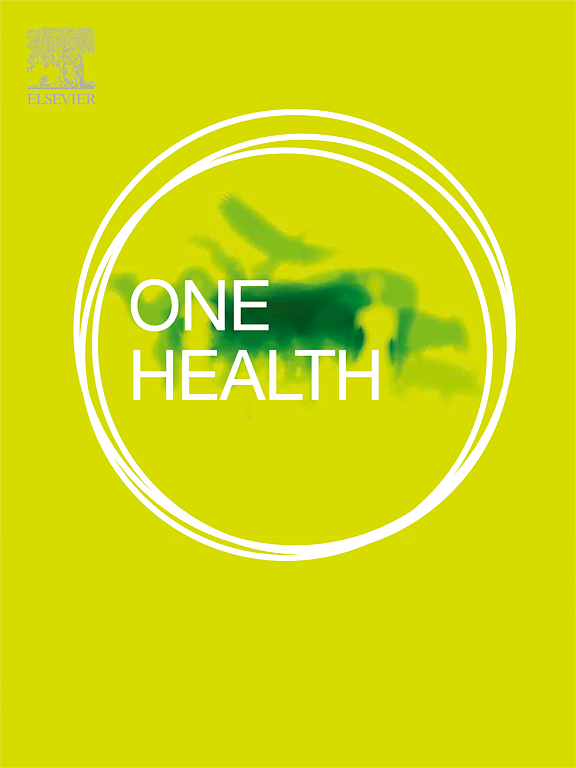How studies on zoonotic risks in wildlife implement the one health approach – A systematic review
IF 4.1
2区 医学
Q1 INFECTIOUS DISEASES
引用次数: 0
Abstract
Background
The recent COVID-19 pandemic and the emergence of infectious diseases at the human-animal interface highlight the global challenge of mitigating zoonotic risks. The One Health approach emphasizes the interconnectedness of human, animal, and environmental health, urging for holistic and interdisciplinary strategies in disease prevention. Despite growing interest, the attention to wildlife in pandemic prevention remains limited. This systematic literature review aims to evaluate recent One Health research on zoonotic diseases and wildlife in terms of study design, interdisciplinary collaboration, and participatory approaches. Key questions addressed include the consideration of One Health domains, disciplinary involvement, and the inclusion of non-academic stakeholders.
Methods
Following PRISMA guidelines, PubMed and Web of Science were searched for primary research papers on zoonotic diseases and wildlife from 2018 to 2023. Eligibility criteria included a focus on wildlife, zoonotic diseases, and adoption of the One Health approach.
Results
A total of 228 primary research papers were retrieved. Out of these, 105 studies were included in the review. Few studies integrated human, animal, and environmental domains simultaneously in data collection (4.8 %) and knowledge generation (29.5 %). While extensive knowledge was generated for animal health (97.1 %) and human health (84.8 %), environmental health (34.3 %) remained underrepresented. Laboratory methods predominated (82.9 %), with limited integration of social science methodologies (19 %). The majority were epidemiological studies (86.7 %), yet analytical design within these was sparse (17.1 %). Participation of non-academic stakeholders was limited (36.2 % included non-academics; 3.8 % encompassed participative approaches).
Conclusions
The synthesis of the domains human, animal and environmental health remained fragmentary in the studies reviewed. Environmental health is underrepresented and the interdisciplinary involvement of social sciences lacks. Neglecting these fields of competence impedes comprehensive understanding of disease dynamics and hampers effective zoonosis prevention strategies. In result, greater inter- and transdisciplinary collaboration, along with participatory approaches, are still needed for advancing One Health research.
关于野生动物人畜共患病风险的研究如何实施 "一种健康方法"--系统回顾
背景最近的 COVID-19 大流行以及人兽共患病的出现凸显了降低人畜共患病风险的全球性挑战。统一健康 "方法强调人类、动物和环境健康之间的相互联系,敦促在疾病预防中采取全面和跨学科的策略。尽管人们对野生动物的兴趣与日俱增,但在预防大流行病方面对野生动物的关注仍然有限。本系统性文献综述旨在从研究设计、跨学科合作和参与式方法等方面评估近期有关人畜共患病和野生动物的 "一体健康 "研究。所涉及的关键问题包括 "一体健康 "领域的考虑、学科参与以及非学术利益相关者的参与。方法按照PRISMA指南,在PubMed和Web of Science上搜索了2018年至2023年有关人畜共患病和野生动物的主要研究论文。资格标准包括关注野生动物、人畜共患病以及采用 "一个健康 "方法。结果共检索到 228 篇主要研究论文。其中,105 项研究被纳入审查范围。很少有研究在数据收集(4.8%)和知识生成(29.5%)方面同时整合了人类、动物和环境领域。虽然在动物健康(97.1%)和人类健康(84.8%)方面产生了大量知识,但环境健康(34.3%)方面的知识仍然不足。实验室方法占主导地位(82.9%),与社会科学方法的结合有限(19%)。大多数是流行病学研究(86.7%),但其中的分析设计很少(17.1%)。非学术利益相关者的参与有限(36.2% 包括非学术界人士;3.8% 包括参与式方法)。环境健康的代表性不足,缺乏社会科学的跨学科参与。忽视这些领域的能力阻碍了对疾病动态的全面了解,并妨碍了有效的人畜共患病预防战略。因此,仍需加强跨学科和跨学科合作,并采用参与式方法,以推进 "一体健康 "研究。
本文章由计算机程序翻译,如有差异,请以英文原文为准。
求助全文
约1分钟内获得全文
求助全文
来源期刊

One Health
Medicine-Infectious Diseases
CiteScore
8.10
自引率
4.00%
发文量
95
审稿时长
18 weeks
期刊介绍:
One Health - a Gold Open Access journal.
The mission of One Health is to provide a platform for rapid communication of high quality scientific knowledge on inter- and intra-species pathogen transmission, bringing together leading experts in virology, bacteriology, parasitology, mycology, vectors and vector-borne diseases, tropical health, veterinary sciences, pathology, immunology, food safety, mathematical modelling, epidemiology, public health research and emergency preparedness. As a Gold Open Access journal, a fee is payable on acceptance of the paper. Please see the Guide for Authors for more information.
Submissions to the following categories are welcome:
Virology,
Bacteriology,
Parasitology,
Mycology,
Vectors and vector-borne diseases,
Co-infections and co-morbidities,
Disease spatial surveillance,
Modelling,
Tropical Health,
Discovery,
Ecosystem Health,
Public Health.
 求助内容:
求助内容: 应助结果提醒方式:
应助结果提醒方式:


